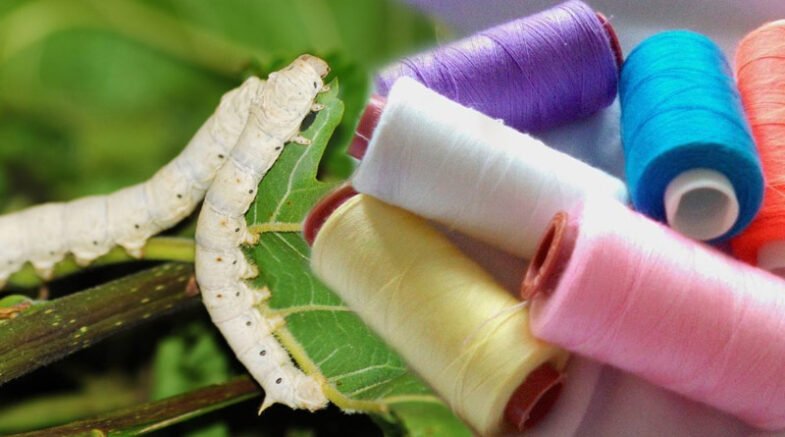Silk Industry of Pakistan has enormous growth potential, and with the correct funding and assistance, it might play a vital role in the development of the national economy.

For many years, Pakistan has had a sizable silk industry, with the breeding of silkworms being a crucial part of that business. The cultivation of silkworms and creation of silk from their cocoons are both steps in the process of raising silkworms.
Silk Industry of Pakistan has enormous growth potential, and with the correct funding and assistance, it might play a vital role in the development of the national economy.
In the larval stage of the silk moth, silkworms are raised in order to make silk, and the silk thread is then extracted from their cocoons. Following this, the silk thread is spun into yarns that are used to make a variety of silk items, including sarees, gowns, scarves, and ties.
Due to its ideal environment for silkworms and plentiful supply of mulberry leaves—the main food source for silkworms—Pakistan has the potential to become a significant player in the silk industry.
Between 25°C and 30°C is the optimal temperature range for silkworms, which is suitable for Pakistan’s climate. Pakistan also has a sizable agricultural industry that can produce a consistent supply of mulberry leaves, which are essential for the proper growth of silkworms.
Pakistan can profit from the global demand for silk products because there are resources for silkworm breeding. The burgeoning middle class in nations like China and India is driving up demand for silk items, which is driving up the value of the global silk market, which is worth billions of dollars. Pakistan can take advantage of this expanding market by creating premium silk goods that can compete with those made in other significant silk-producing nations.
For Pakistani farmers and rural people, the production of silk by silkworms can be a source of income. A labour-intensive procedure that necessitates a lot of manual labour, raising silkworms can offer rural populations economic prospects. Additionally, farmers who produce silk may be able to supplement their income by selling their cocoons to manufacturers that process silk.
The government can offer incentives and assistance to farmers and businesspeople who are interested in beginning a silk business in Pakistan in order to boost the production of silk using silkworms. This can entail granting access to education, technical help, and financial aid while also fostering a supportive political environment for the silk sector.
The cultivation of the mulberry plant is the first step in the raising of silkworms. The main food source for silkworms is mulberry, which thrives in Pakistan’s climate. After being gathered, the mulberry leaves are given to the silkworms. Before spinning their cocoons, the silkworms go through a number of developmental stages. The silk is then extracted from the cocoons through processing.
Lack of modern machinery and technology for silk production is one of the issues Pakistan’s silk industry is facing. The majority of steps in the creation of silk are carried out manually, which takes a lot of time and labour. Due to this, it is challenging for small-scale manufacturers to compete with larger, more automated producers of silk in other nations.
The National Silk Program, which aims to advance silk production, enhance the quality of silk produced, and offer technical and financial support to silk producers, is one of the fundamental programs.
Pakistan’s market for silk goods is also expanding, and a lot of fashion houses and designers are using silk in their collections. Small-scale silk producers now have a chance to access this market and boost their earnings.
Growing rapidly, silkworm rearing in Pakistan has the potential to significantly impact the economy of the nation. Small-scale producers of silk can boost their output, boost their earnings, and compete with larger producers of silk in other nations with the correct funding and assistance.
The government’s attempts to support silk producers and encourage the production of silk are a positive move that ought to be maintained and enhanced in the upcoming years. The University of Agriculture Faisalabad has been focusing on how to grow silk for small land holders.
